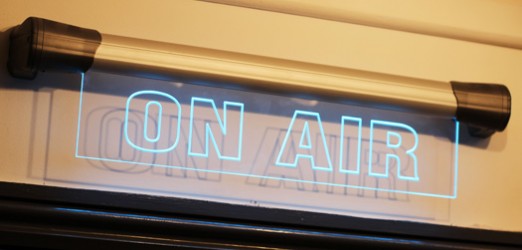When it’s successful, broadcast PR can change fortunes. It’s influential, credible and persuasive. But for all those reasons, when broadcast PR goes wrong the effect can be devastating.
We’ve come up with some of the most common broadcast PR disasters – and more importantly – how you can avoid them:
Forgetting your microphone is switched on
You wouldn’t be the first, and those who have fallen into this trap include many politicians. But a journalist would be well within their rights to use ANYTHING you said that was recorded – regardless of whether you thought it was being recorded or not. A really good rule is: never say anything in a room with a microphone that you wouldn’t want to go out on air.
Being late for an interview
News is much more likely than programming to take a PR story and so much news is covered with live interviews. If you miss your slot, you may well lose the opportunity completely. Always allow plenty of time to get to a studio. Studios are often down labyrinths of corridors and when you’re being interviewed for national television you should allow time for make up too!
Missing the slot
It’s not just an interview you can miss, you can fail to get pictures to a broadcaster in time too. We can turn a film and edit round in a few hours – but only when we plan for it. That means we might edit on-site and start the editing process before filming has even finished; we’ll keep filming and interviews short to reduce editing time; and our producers will go to the edit with a clear idea of what needs to be put down. In our experience, lengthy approvals (and too many people approving) can also hold things up. You need to agree a finish time
Someone not being on message
We’ve had them all – Key Opinion Leaders, case studies and even corporate spokespeople who’ve not been briefed properly or who have failed to understand the story and have disagreed with the story on air! Establishing 3 or 4 key messages prior to the interviews helps everyone sing from the same song sheet. Write them down, along with any facts or stats you hope your spokespeople will use during the interviews.
Losing your rag on air
Broadcast loves interviewees with an opinion and journalists love to pit one voice against another. But NEVER get angry. Whatever you say must be controlled – so take a deep breath and force yourself to speak slowly; let other guests speak, never shout them down but politely insist on expressing your opinion too.
Not allowing enough time to sell in, so not maximising coverage
Broadcasters work on lists and the earlier you can get a story on a list the better the chances of getting it on air. Nationals (radio and TV) have a weekly meeting, most of them on a Thursday; then they have day before meetings and early morning meetings. BBC regional radio really likes to get prepared – they often book-up a week or more ahead – particularly the mid-morning stories that are more interested in feature-type stories.
Being pulled off air for too much branding
BBC journalists need to adhere to the corporation’s Producer Guidelines and commercial stations have to answer to advertisers – so both are sensitive when it comes to branding. In our experience 1 – 2 mentions of a brand or company name are acceptable and they’re much more palatable if you can work them into an interview in a relevant way: “The research published by XXX showed some shocking results…..” Over-egg your branding though, and a journalist would be well within their rights for stopping or not using an interview.
Not being prepared for the “killer” question
NEVER go into an interview unprepared! A good PR agency or comms team should always ask a journalist about the context of an interview – what’s the angle of the story and who else is being interviewed. That should then allow you to ask: “What’s the worst question they could ask?”.
The old saying goes that by failing to prepare, you’re preparing to fail – and that’s certainly true when it comes to developing a broadcast PR strategy. If you need help avoiding these pitfalls – and many others – get in touch with a member of our team today to see how we can help you develop a foolproof broadcast PR plan.
Or sign up for our upcoming workshop about the current state of broadcast and what it means for PR.




